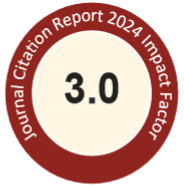Abstract
Lysine was attached to phenylbutyric acid (PBA) to form PBA-α-Lys and PBA-ω-Lys as PBA prodrugs for treating chemotherapy-associated mucositis. Pharmacokinetic studies were conducted in Wistar rats for determining the systemic bioavailability of both prodrugs and the released PBA. The systemic bioavailability of PBA after oral administration of PBA-α-Lys or PBA-ω-Lys was higher than from i.v. administration, indicating that first pass effect is responsible for the transformation from the prodrugs to the parent drug. Lack of stability in the intestine made PBA-α-Lys unsatisfied as an oral prodrug of PBA. Oral administration of PBA-ω-Lys, on the other hand, led to a slow PBA-releasing profile in circulation. Although the AUC 0→t of systemic released PBA from oral administration of PBA-ω-Lys was lower than from oral administration of PBA per se, MRT inf was 5 times longer (9.64 ± 2.16 vs 1.81 ± 0.28 hr), t1/2 was 4 times longer (6.18 ± 2.09 hr vs 1.50 ± 0.17 hr), and AUMCinf was 2 folds higher (168.7 ± 67.7 hr*h*μg/mL vs 88.8 ± 12.4 hr*h*μg/mL). In conclusion, oral administration of PBA-ω-Lysine exhibited a sustained PBA-releasing pharmacokinetic profile in rats. The bioavailability of PBA released in inflammatory tissues and anti-mucositis activity need to be further investigated for the evaluation of PBA-ω-Lysine as an effective targetable anti-mucositis agent.
Recommended Citation
Wang, C.-L.; Hsueh, P.-R.; Sun, M.-J.; Leu, Y.-L.; Chang, F.-S.; Yang, S.-W.; Lian, J.-F.; and Wang, H.-P.
(2010)
"PBA-ω-Lys as sustained phenylbutyrate-releasing prodrug,"
Journal of Food and Drug Analysis: Vol. 18
:
Iss.
6
, Article 6.
Available at: https://doi.org/10.38212/2224-6614.2242

